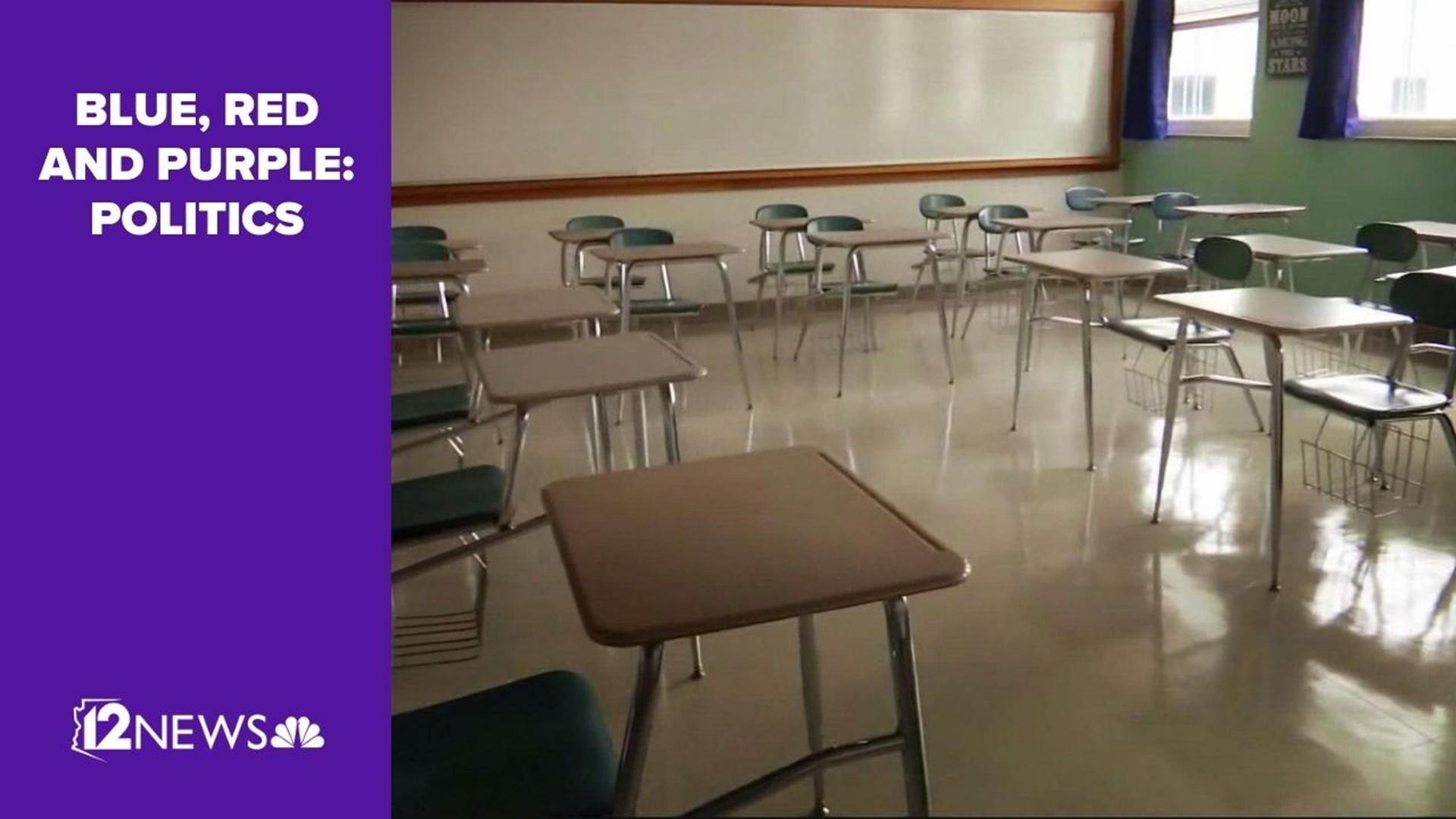ARIZONA, USA — Republican Gov. Doug Ducey on Thursday signed a massive expansion of the state’s private school voucher system, even as he faced a promised effort by public school advocates to block the bill and ask voters to erase it during November’s election.
The expansion Ducey signed will let every parent in Arizona take public money now sent to the K-12 public school system and use it to pay for their children’s private school tuition or other education costs.
Arizona already has the most expansive education options in the nation and will have the most comprehensive voucher system if the bill takes effect.
An estimated 60,000 private students and about 38,000 being homeschooled would immediately be eligible to take up to $7,000 per year, although a small number currently get vouchers. All 1.1 million students who attend traditional district and charter schools would also qualify to leave their public schools and get money to go to private schools. About a third already qualify, but only about 12,000 students statewide now use the system.
Ducey has championed “school choice” during his eight years in office. He signed a universal voucher expansion in 2017 with enrollment caps that was referred to the ballot by a grassroots group called Save Our Schools Arizona.
Voters soundly rejected the expansion by a 2-to-1 vote in the 2018 election, but advocates of what are formally called “Empowerment Scholarship Accounts” pushed ahead with new expansions anyway. The universal voucher bill passed with only support from majority Republican lawmakers in the legislative session that ended early on June 25.
Save Our Schools Arizona Executive Director Beth Lewis said her group will immediately file to refer the law to the ballot under a provision of the Arizona Constitution that allows opponents of new laws to collect signatures of 5% of eligible voters and block it until the next general election.
In this case, they will need to collect nearly 119,000 valid signatures, and proponents usually add a 25% cushion. They need to have those collected and turned in to the Secretary of State by late September to prevent the law from taking effect and put it on the November ballot.
“I have every confidence that we’re going to be able to refer HB2853,” Lewis said in an interview. “Our network of volunteers across the state are pumped and ready.”
Lewis and other public school advocates say vouchers take money from an already underfunded public school system, while proponents herald the program as letting parents choose the best education for their children.
Lewis said the price tag of the new voucher law could take away more than the new school funding lawmakers added this year, which neared $1 billion in ongoing and one-time cash.
“In a nutshell, this bill will siphon upwards of $1 billion from public schools every single year to unaccountable private academies, micro schools and homeschools,” Lewis said. “And we simply can’t let that happen.”
Many of the students in the voucher program are disabled. By adding current private and home-schooled students, she said anywhere from $400 million to $600 million would be “going out the window like overnight, with automatic eligibility on September 26.”
The Legislature’s budget analysts put the expansion costs much lower, at $125 million in two years, but acknowledge the figures are highly speculative and based on new costs, not the losses from public schools. Many private school students get money from a tax credit program, but those payments average much less than vouchers, so many are likely to switch.
Ducey has been touting the expansion on social media in the past two weeks, and touted mentions in conservative news outlets in a news release announcing the bill signing.
Ducey in a statement called the signing a “monumental moment for all of Arizona’s students. Our kids will no longer be locked in under-performing schools.”
Most of those underperforming schools, however, are in low-income areas with little access to private schools and whose parents rely on the local public schools, which have been underfunded for years.
He made no mention of the overwhelming rejection of the 2017 expansion or of the expected new challenge. Instead, he touted Arizona's lead in private school options.
“With this legislation, Arizona cements itself as the top state for school choice and as the first state in the nation to offer all families the option to choose the school setting that works best for them,” he said.
The voucher law contains no accountability provisions like testing that a few Republicans had sought. There’s also limited oversight of the funds distributed.
The program only applied to students with disabilities when it began in 2011 but has been greatly expanded over the years to cover many others, including students living on American Indian reservations, attending low-performing public schools and other groups.
The nearly 12,000 current students were awarded $196 million in the just-ended school year, according to data from the Arizona Department of Education. About $20 million of that has not yet been disbursed.
Parents get 90% of the state funds that normally go to their local public school to use for private school tuition and other education costs. Disabled students can receive up to $40,000 for specialized therapy.
Up to Speed
Catch up on the latest news and stories on the 12 News YouTube channel. Subscribe today.

